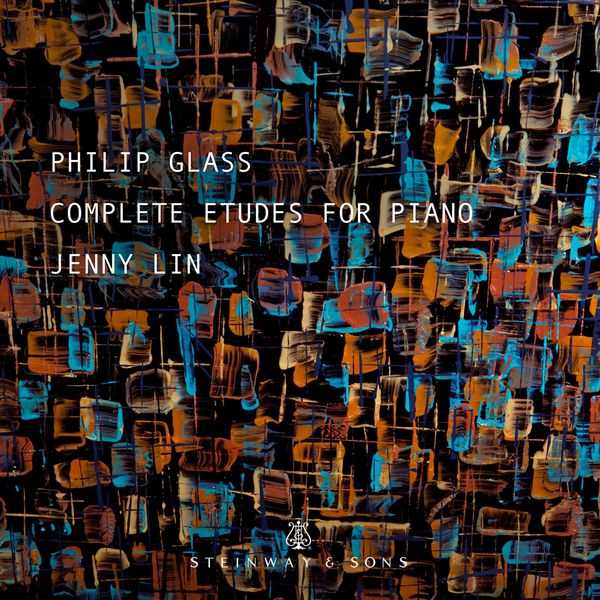

Composer: Philip Glass
Performer: Jenny Lin
Number of Discs: 2
Format: FLAC (tracks)
Label: Steinway and Sons
Catalogue: STNS30070
Release: 2017
Size: 3.31 GB
Recovery: +3%
Scan: yes
Études
CD 01
Book 1
01. Étude No. 1
02. Étude No. 2
03. Étude No. 3
04. Étude No. 4
05. Étude No. 5
06. Étude No. 6
07. Étude No. 7
08. Étude No. 8
09. Étude No. 9
10. Étude No. 10
CD 02
Book 2
01. Étude No. 11
02. Étude No. 12
03. Étude No. 13
04. Étude No. 14
05. Étude No. 15
06. Étude No. 16
07. Étude No. 17
08. Étude No. 18
09. Étude No. 19
10. Étude No. 20
One of the most influential composers of our time, Philip Glass has created an opus in the tradition of Frederic Chopin. The Etudes, conceived to develop his own keyboard skills, evolved into a career achievement reflecting the breadth of his compositional style. Jenny Lin is one of the most respected young pianists today, admired for her adventurous programming and charismatic stage presence. Her ability to combine classical and contemporary literature has brought her to the attention of international critics and audiences. She has been acclaimed for her “remarkable technical command” and “a gift for melodic flow” by The New York Times. The Washington Post praises “Lin’s confident fingers… spectacular technique…” and Gramophone Magazine has hailed her as “an exceptionally sensitive pianist”. Martha Argerich wrote: “Miss Jenny Lin is a very gifted young musician and a brilliant pianist.”
Philip Glass’ 20 études for piano were written in two sets, with Glass himself as the intended performer. Like Chopin’s études, however, they are susceptible to an unusually wide range of possible interpretations. Jenny Lin has been close to Glass at various points in the works’ development, but this does not mean that she is obligated to follow his lead in terms of interpretation. Indeed, it’s the best possible news for his music that any prescriptions he may have laid down are now being discarded in favor of variety. Lin has performed on bills where the etudes are performed in a group to show their versatility. The etudes fit generally into Glass’ late style, introducing Romantic elements into a harmonically varied minimalist language. Lin offers some of the widest dynamic ranges to be heard on recordings of Glass’ keyboard and chamber music, and her performances are sweeping and powerful. Sample the spacious Etude No. 7, in which Glass’ music takes on real epic stature, or the quiet conclusion to the whole (the Etude No. 20). Lin made the recordings on four separate occasions, all at the acoustically superb Steinway Hall, and the études, like Chopin’s, were perhaps not meant to be played all together. Maybe this is a lot of Philip Glass at once, but the increasing variety of Glass recordings, beyond his own Orange Mountain Music label, is nothing but good news for lovers of his music, and this must be one of the strongest new entries in the field.